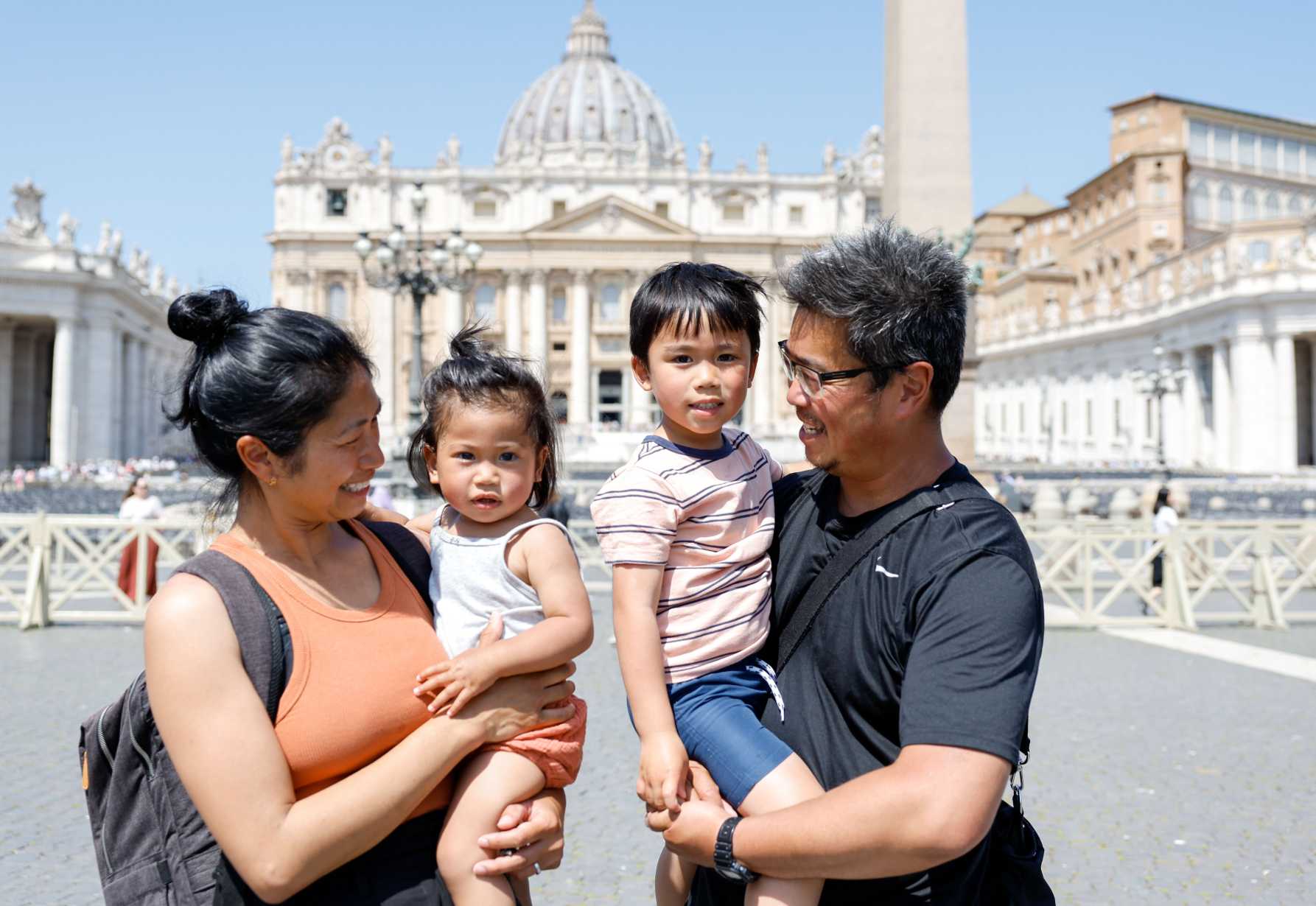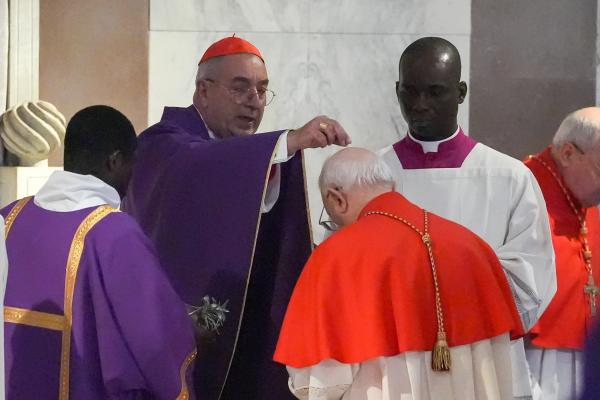Vatican launches compact for families with pope's support
Pope Francis urged Catholics not to resign themselves to "the decline of the family" in a letter released for the launch of a Vatican compact for families.
 Cindy Wooden
Cindy Wooden

Members of the Cruz-Lay family from Australia pose for a photo in St. Peter's Square at the Vatican May 30, 2023, the day the Vatican announced the launch of the Family Global Compact. (CNS photo/Lola Gomez)
VATICAN CITY (CNS) -- Asserting that "it is in the family that many of God's dreams for the human community are realized," Pope Francis asked Catholic universities and Catholic couples around the world to support the "Family Global Compact."
"We cannot resign ourselves to the decline of the family in the name of uncertainty, individualism and consumerism, which envision a future of individuals who think only of themselves," the pope wrote in a letter released May 30 with the launch of the compact by the Dicastery for Laity, the Family and Life and the Pontifical Academy of Social Sciences.
"We cannot be indifferent to the future of the family as a community of life and love, a unique and indissoluble covenant between a man and a woman, a place where generations meet, a source of hope for society," the pope continued.
Pastoral, social and financial support for families is not a concern only for the church, he said, because strong families have "a positive effect on everyone" and are a key factor in promoting the common good.
"Healthy family relationships represent a unique source of enrichment, not only for spouses and children but for the entire ecclesial and civil community," the pope wrote.
The dicastery and the academy of social sciences began working on the global compact in 2021, seeking ways to promote cooperation between those engaged in the pastoral care of families and Catholic university programs and centers specialized in research about family life, as well as to form a network among the universities.
The compact says by sharing research into the realities families are living today "helpful public policy resolutions and objectives can emerge."
The goal of the compact, according to its mission statement, is to enhance and sustain service to families "in spiritual, pastoral, cultural, legal, political, economic and social terms."
Gabriella Gambino, undersecretary of the dicastery, said the university programs already onboard include not only those dedicated to studying the family, but also a couple women's studies programs, given the reality that family life, heading single-parent families, dealing with the impact of poverty, trying to find a work-life balance and raising children all are issues that currently impact women more than men.
The compact wants to focus on the importance of family relationships, Gambino said, and that includes promoting research on women's responsibilities and relationships with spouses, partners, children, relatives and the wider community "so that these relationships will be considered in the public arena" when new family policies or services are being discussed.
"This is our concern: A woman is not just an individual when she cares for her family, and this must be considered in the marketplace, in society, in the kinds of services offered to women and at work," Gambino said. "For example, one must recognize the ties a woman has with her children when one is trying to harmonize home and work. These ties, these bonds are important, they are fundamental in people's lives."
Another thing she said she hoped would come out of the compact is a call "for the education of men in the authentic sharing" of responsibility for careers and the home, including childcare, "because otherwise the task of harmonizing the two falls almost always on the woman."
Dominican Sister Helen Alford, president of the Pontifical Academy of Social Sciences, said the work of the academicians showed both "light and shadows" in how families around the world are doing. But "it was clear in the discussions during the plenary last year that the family remains a very resilient social structure, capable of absorbing shocks and of providing support and healing to people in many different circumstances."
"In a world that is looking for more resilience in the face of projected future crises, including those arising from climate change," she said, "investing in the family and in research into how families can face their challenges more effectively, would bring great returns for society as a whole."
The academy, she said, proposed that the Vatican launch the compact and called for the church to work to include "the promotion of family well-being" in the U.N.'s next set of sustainable development goals. Academy members also saw need for "national action plans to help families meet their basic needs and implement them by allocating a significant amount of their budget to them," and for the creation of working groups to come up with "family-friendly employment contracts, focusing on concrete actions and preparing positions on key issues that could improve relations between families and businesses."



